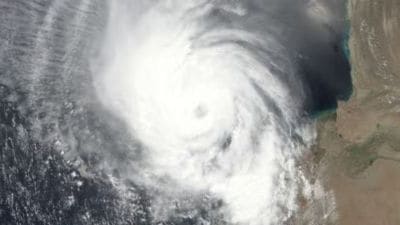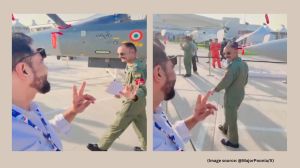No US strike on Iraq till winter Olympics
ABU DHABI, Feb 10: The United States today said it respected a UN resolution for no hostilities against Iraq till the ongoing winter Olympic...

ABU DHABI, Feb 10: The United States today said it respected a UN resolution for no hostilities against Iraq till the ongoing winter Olympics were over on February 22 even as Russia and China stepped up their opposition to a military strike.
UN Secretary General Kofi Annan appealed for cool heads in the Gulf crisis, and France said the chances for a diplomatic solution were narrowing.
“We are not beating the tom-toms in the White House or in the Pentagon, but we are preparing obviously for the option if diplomacy fails,” US Defence Secretary William Cohen said. A US official said Cohen, on a tour of the Gulf, had won agreement from Oman to station US support planes on its territory for a possible strike against Iraq. Australia pledged military support for any US-led strike to force Iraq to submit to UN weapons inspections, hours after a similar promise of support from Canada. A Spanish newspaper said Madrid would let Washington use its bases for military operations.
Iraq issued an open invitation toforeign politicians to visit Baghdad and see the effects of more than seven years of economic sanctions, the official news agency INA said. It said they could discuss the “dangers of the US threats of a new military aggression against Iraq and the negative repercussions and the shock to regional security".
Britain has firmly backed the United tates tough line. But Russia, France and China, the other permanent members of the UN Security Council, have all spoken out strongly against the use of force.
Chinese Foreign Ministry spokesman Zhu Bangzao said a military strike “will result in heavy human casualties, heighten regional tensions and even trigger more serious conflicts”.
France said chances for a diplomatic settlement to the crisis were diminishing, but pledged to keep up its efforts to find a peaceful way out.Russia and Italy said they were sending a joint appeal to Iraqi leader Saddam Hussein to avert an “unpredictable conflagration”.
Russian Foreign Ministry spokesman Gennady Tarasov saidMoscow feared attacks could be made on potential stores of lethal Iraqi weapons.“We wonder consequently what may be the results on applying massive firepower against arsenals of mass destruction,” he said.
President Saddam Hussein, meanwhile, has intensified diplomatic efforts to shore up Arab support in favour of Baghdad by sending ministers and diplomats to various Arab capitals to explain its position in its confrontation with the United States.
President Saddam also sent personal messages to heads of state of some GCC countries to counter the visit of US Defence Secretary William Cohen to drum up support from Washington’s Arab allies.
The Amir of Qatar Shaikh Hamad Bin Khalifa Al Thani discussed the Iraqi crisis with Saudi ruler King Fahd Bin Abdul Aziz in Jeddah after he received a message from President Saddam.
Saudi Arabia has refused to offer its air bases to Washington for use by its 50-odd fighters stationed there for launching attacks against Baghdad.Iraqi Foreign Minister Mohammed SaeedAl Sahhaf met his Syrian counterpart Farouk Al Sharaa in Damascus to gather support from Syria, once the sworn enemy of Iraq.
Sharaa said after the meeting he believed that the Iraqi crisis could be solved through diplomacy. The Iraqi minister also said use of force will not solve the problem and that the backers of a military solution wanted to divide Iraq.




- 01
- 02
- 03
- 04
- 05



























